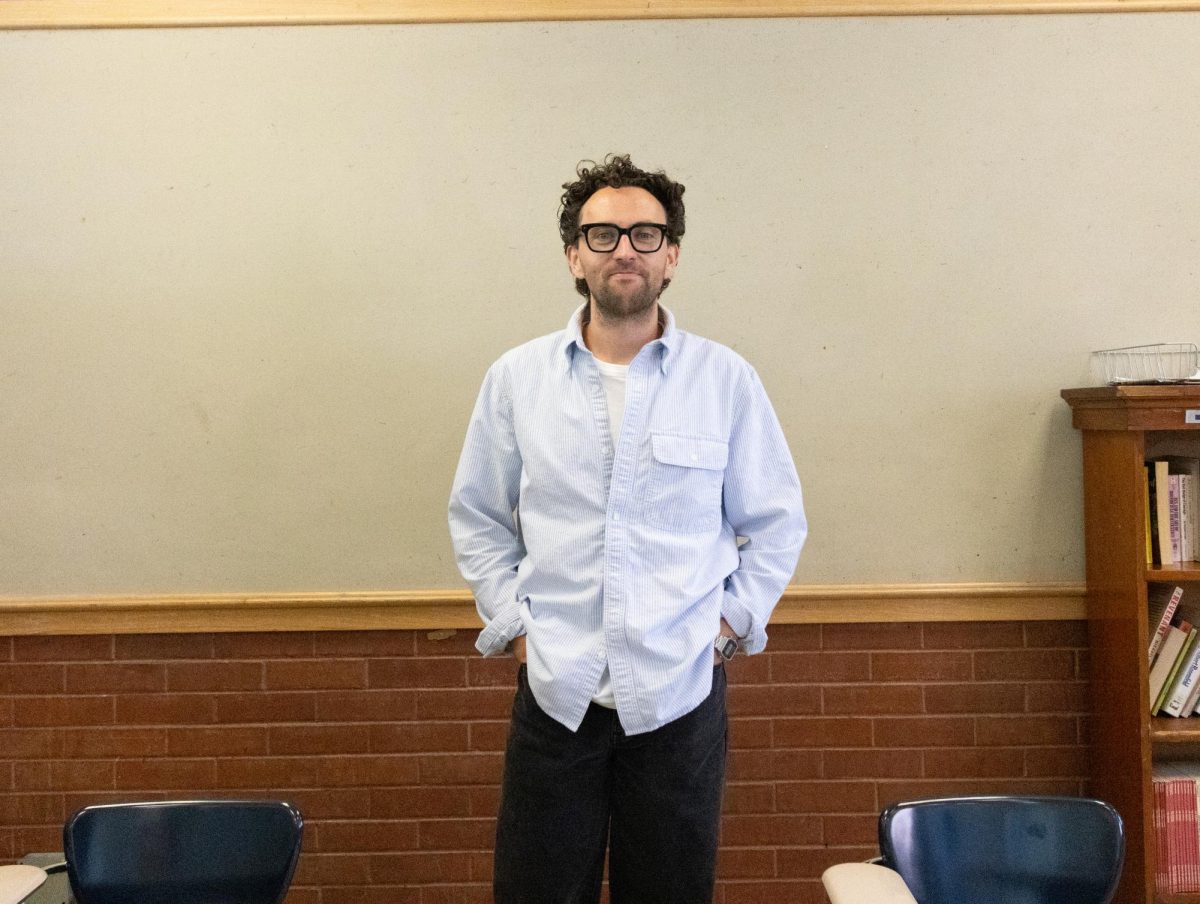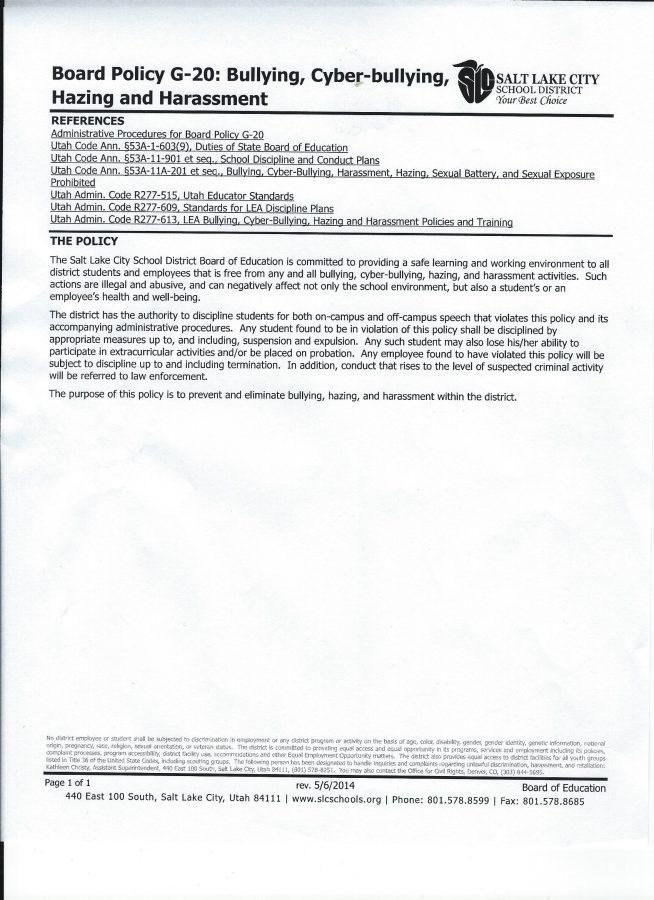New Policy G-20 Hopes to Combat Raise of Cyber-Bullying
Salt Lake City School District
New school policy reiterates that cyber-bullying will not go by unnoticed.
February 1, 2017
Chuck Shumer passionately and tearfully responded to the executive order regarding vetting refugees by saying, “And I, as your senator from New York, will claw, scrap, and fight, with every fiber in my being, until these orders are overturned.”
Donald Trump via twitter responded: “Nancy Pelosi and Fake Tears Chuck Schumer held a rally at the steps of The Supreme Court and mic did not work (a mess)-just like Dem party!”
Due to an ever-increasing trend in social media and newly-elected President Donald Trump, cyber-bullying is now en vogue. But one does not need to look at national news to see that cyber-bullying and harassment via social media is now a common way to gain popularity amongst peers. All one needs to do is look around Highland’s classrooms or hallways to see students taking pictures of their classmates captioned with, ‘only at Highland’, posting mean memes, or capturing invasive images of their peers.
It was not until yesterday however, that Highland tried to crack down on a problem that is evidently much larger itself. Stating that the district has the ‘authority to discipline students for both on-campus and off campus speech that violates this policy,’ new policy G-20, while not exactly introducing a foreign concept, expresses a new resolve in regards to ending bullying, cyber-bullying, hazing, and harassment.
The policy does not seems to be new to students however, as many recall signing an anti-bullying policy at the beginning of the school year.
“To me it doesn’t really feel like it’s a new policy because it is something we have talked about before. Maybe the purpose was to say that is going to be more heavily enforced. I think it is difficult to say if Highland has a problem with cyber-bullying. Social media is something that practically ever student uses and I think if we did have a problem it would be really difficult to get rid of it,” said senior Andrew Tescula.
The policy specifies that administrators plan to discipline students with appropriate measures that could possibly include probation of extracurricular activities, suspension, and expulsion.
“Sometimes we don’t always see all of the implications of what we are going to say so if it is going to be set in stone- or set in Instagram or Snapchat then we need to be cautious. This policy reminds everyone they need to be careful with what they do and say,” said Assistant Principal Mary Lane Grisley.
Cyber-bullying is not something that is new to this generation of students. The idea of solving this problem by just eliminating phones at school is no more realistic than it is a solution. As the policy alludes to, cyber-bullying is not isolated within the screen -or within the six-hour block.
“I think this policy is a reaction. We will see if it is here next year or if it becomes a district policy. I don’t think this was anything that was planned but that it is more a reaction of administrators needing to act because of a situation,” said Medical Anatomy teacher Robert Campos.
Administrators say that the situation of students snapchatting other students during the assembly sparked the policy. But with an understanding that schools are simply a microcosm of society, the resolution of this may not come from new school policy, rather, something much larger.






























